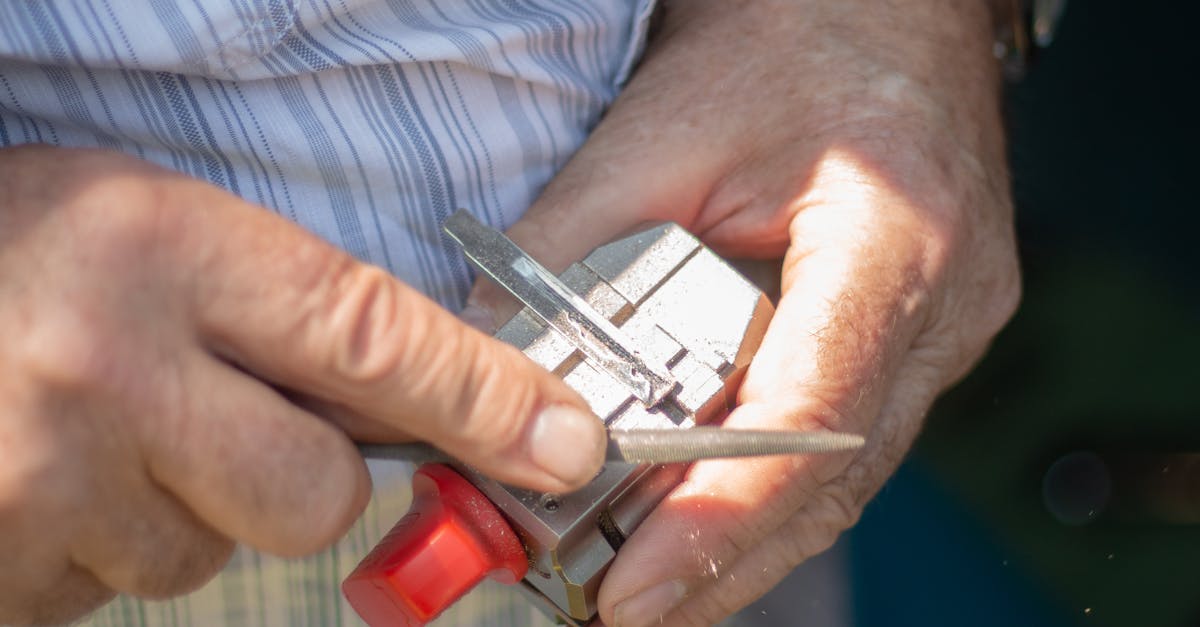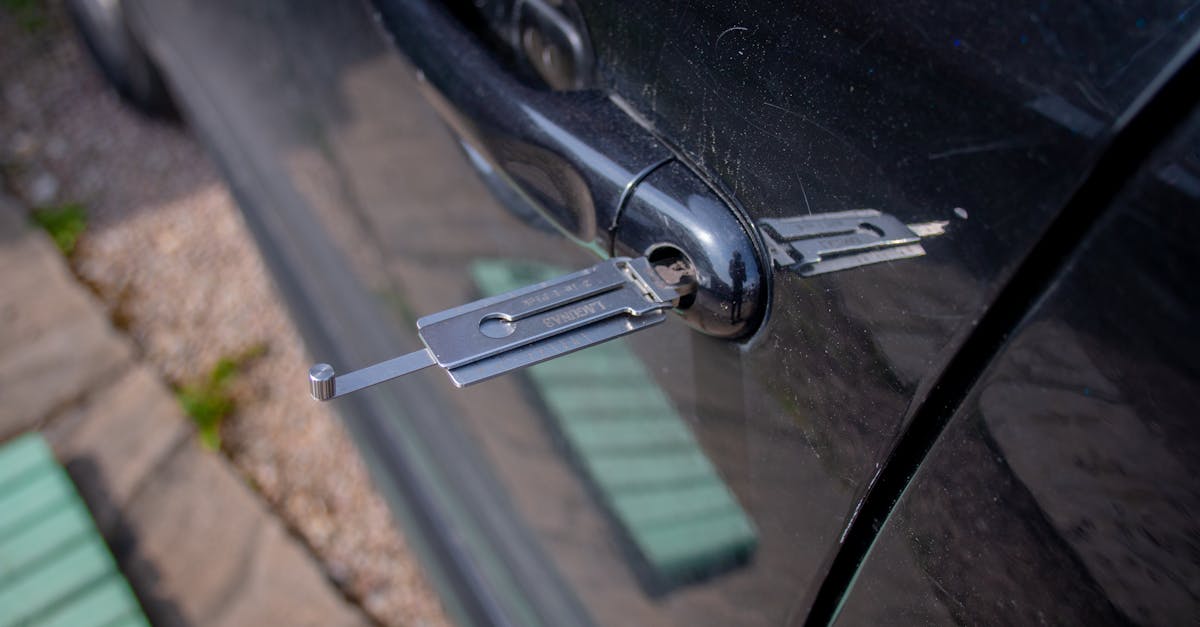
Installation Considerations
When it comes to High-Security Lock Installation, choosing the correct location and surface is crucial for optimal performance. The door material should be compatible with the lock type to ensure a secure fit. Additionally, the lock's mechanism and features must align with the intended use, whether it’s for residential or commercial purposes. Taking time to assess these factors can prevent future issues and enhance overall security.
Proper installation is vital for the efficacy of a high-security lock. Hiring a qualified locksmith can ensure that the lock is fitted correctly and functions as intended. While DIY enthusiasts may be tempted to tackle the installation, the intricacies involved in high-security systems often warrant professional expertise. This not only guarantees a higher level of security but also aligns with manufacturer's specifications and warranty requirements.
Professional vs. DIY Installation
When considering high-security lock installation, the choice between professional and DIY methods presents distinct advantages and challenges. Professionals typically possess the experience and expertise required to ensure the lock is installed correctly and functioning optimally. Their knowledge of various lock systems can also help in selecting the most suitable option for specific security needs. Moreover, professional installation often comes with warranties, providing peace of mind for homeowners.
On the other hand, some individuals may opt for DIY installation to save on costs or enjoy a sense of accomplishment. This route allows for flexibility in scheduling and can be appealing for those with handyman skills. However, it’s vital to recognise the potential risks involved. Incorrect installation could jeopardise the effectiveness of the high-security locks, making the property more vulnerable. Therefore, adequate knowledge and understanding of the installation process are crucial for those considering this option.
Maintenance of HighSecurity Locks
Regular maintenance is essential to ensure the reliability and effectiveness of high-security locks. A thorough examination of the locks should be part of routine checks, addressing any signs of wear or damage promptly. This may include inspecting the locking mechanism, ensuring that all moving parts function smoothly, and checking for any obstructions that may hinder operation. High-Security Lock Installation offers robust features, but neglecting upkeep can compromise their effectiveness over time.
Keeping the locking system clean and lubricated can prevent common issues related to rust and grime. Users should consult the manufacturer's guidelines for specific maintenance recommendations suited to the lock's design. Regular maintenance not only extends the lifespan of high-security locks but also enhances overall security. Proper upkeep can make a significant difference in maintaining the integrity of the lock, safeguarding one’s property against potential threats.
Regular Checks and Upkeep
Regular checks and upkeep are vital to ensure the longevity and effectiveness of high-security locks. Inspecting the lock for any signs of wear or damage should be part of a routine maintenance schedule. Dust and debris can accumulate in the locking mechanism, potentially leading to operational issues. Regular lubrication of the components helps maintain smooth functionality. Additionally, ensuring that the lock and its surrounding area remain free from obstructions can prevent unnecessary strain on the locking mechanism.
High-Security Lock Installation is a crucial investment, and proper maintenance protects that investment. Conducting periodic checks allows for early detection of potential problems, which can save on costly repairs in the long run. It is also advisable to keep a record of maintenance activities; this documentation can be beneficial for warranties or if professional servicing becomes necessary. A proactive approach to upkeep nurtures confidence in your high-security system and contributes to a safe environment.
Cost Factors
The cost of high-security locks can vary significantly based on several factors. The brand and model play a crucial role, with well-known manufacturers often commanding higher prices due to their reputation for quality and reliability. Additionally, the complexity of the locking mechanism can impact costs. More advanced features, such as biometric access or smart technology, generally increase the purchase price.
High-Security Lock Installation is another factor that impacts overall expenses. The choice between professional installation and a DIY approach can lead to differing costs. While professional services may involve additional labour fees, they ensure proper fitting and functionality, reducing the risk of future issues. DIY installation may save on immediate costs but requires careful consideration of expertise and tools needed to avoid compromising security.
What Influences the Price of HighSecurity Locks?
The price of high-security locks can vary significantly based on several factors. Quality of materials plays a crucial role, with locks made from advanced alloys or hardened steel typically commanding higher prices. Brand reputation also influences cost; established brands known for reliability and performance often charge a premium. Furthermore, the complexity of the locking mechanism impacts the price, as sophisticated designs with additional security features require more intricate engineering.
High-Security Lock Installation involves labour costs that can add to the overall expense. Professional installation ensures optimal functioning and security, which may justify the price for many homeowners and businesses. The geographical location can also affect costs, with urban areas often experiencing higher labour rates. Other considerations, such as the specific features required for a lock, will further drive up the price, leading customers to weigh their options carefully before making a decision.
FAQS
What features make a lock high-security?
A high-security lock typically includes features such as pick resistance, drill resistance, complex key designs, and durable materials that provide enhanced protection against unauthorised access.
Are high-security locks suitable for residential use?
Yes, high-security locks are suitable for residential use, especially for homeowners looking for increased security for their doors and windows.
How often should I have my high-security locks maintained?
It's recommended to perform regular checks and maintenance at least once a year to ensure the locks remain in optimal condition and function properly.
Can I install a high-security lock myself?
While it is possible to install a high-security lock yourself, professional installation is often recommended to ensure proper fitting and functionality, especially if the lock requires advanced techniques.
What factors influence the price of high-security locks?
The price of high-security locks can be influenced by factors such as the brand, features, materials used, complexity of the locking mechanism, and whether professional installation is required.
